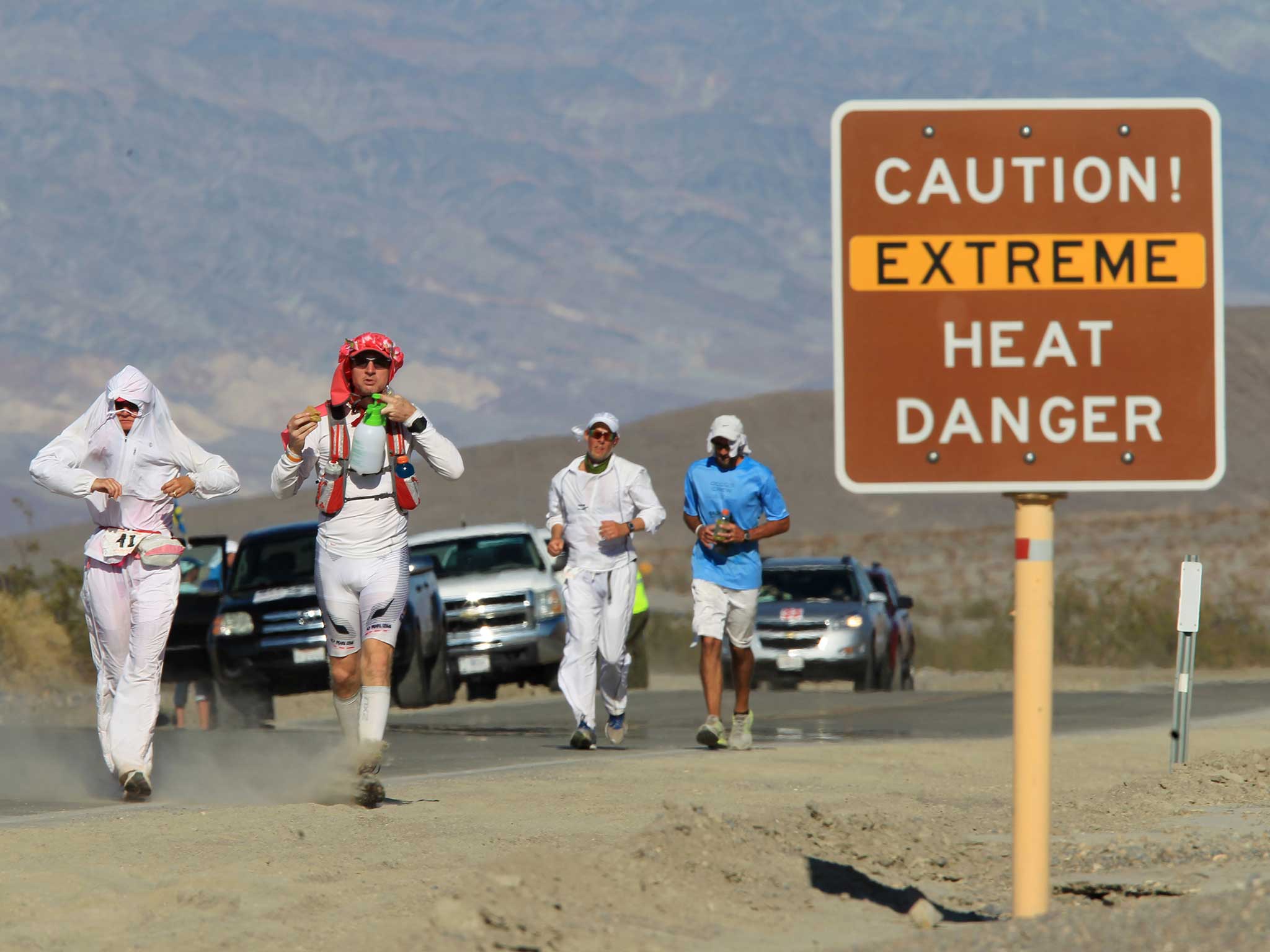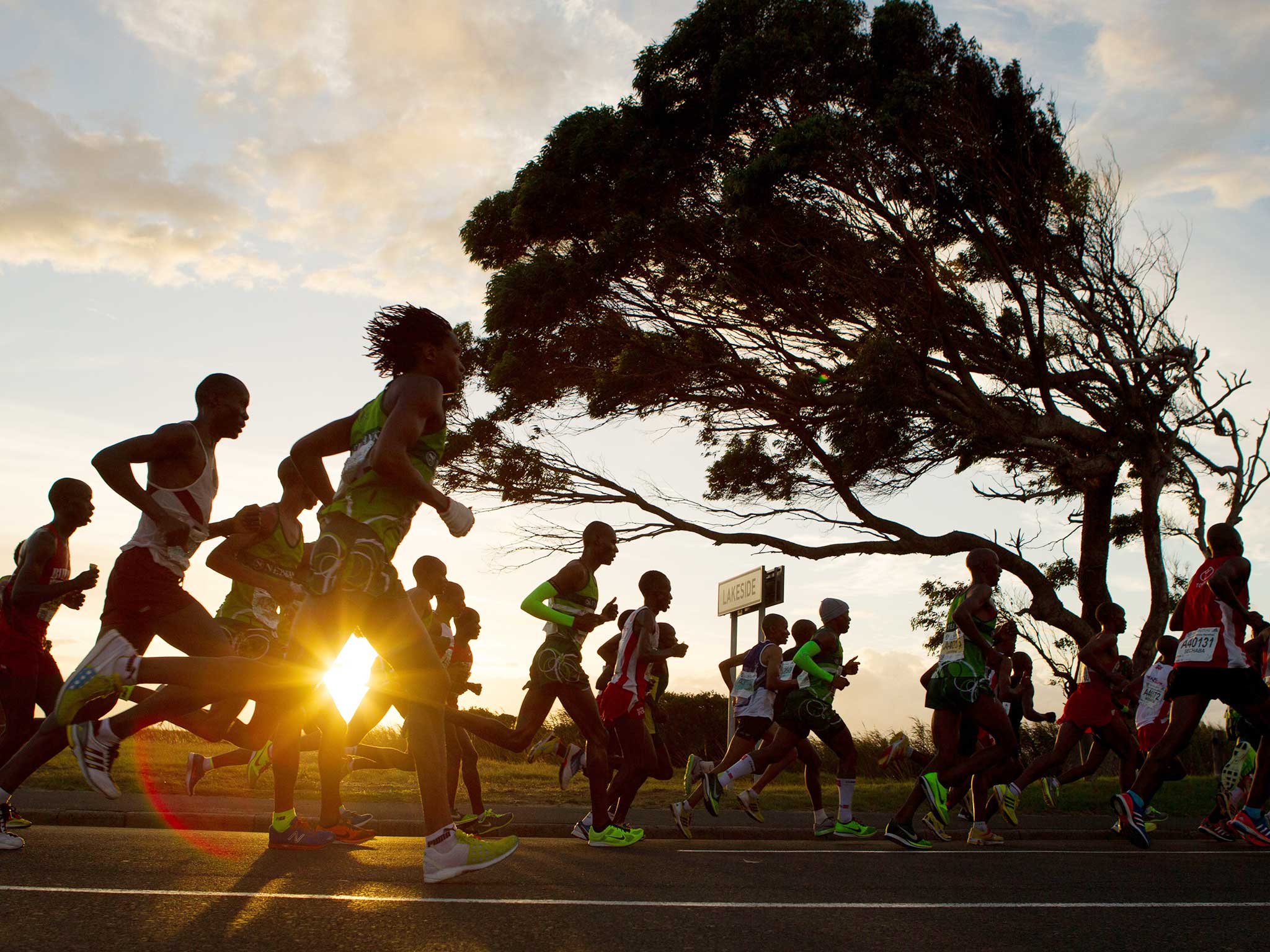London Marathon seems almost tame in these days of ultra-running. How things have changed since I ran the first one
Thirty-five years ago, London staged its first marathon, and tomorrow another 37,000 people will undertake the gruelling course. A heroic achivement? Our man, who was there at the very beginning, wonders if it hasn't become a glorfied fun-run. After all, he says the real action has now gone 'ultra'

Your support helps us to tell the story
From reproductive rights to climate change to Big Tech, The Independent is on the ground when the story is developing. Whether it's investigating the financials of Elon Musk's pro-Trump PAC or producing our latest documentary, 'The A Word', which shines a light on the American women fighting for reproductive rights, we know how important it is to parse out the facts from the messaging.
At such a critical moment in US history, we need reporters on the ground. Your donation allows us to keep sending journalists to speak to both sides of the story.
The Independent is trusted by Americans across the entire political spectrum. And unlike many other quality news outlets, we choose not to lock Americans out of our reporting and analysis with paywalls. We believe quality journalism should be available to everyone, paid for by those who can afford it.
Your support makes all the difference.Runners in Sunday's London Marathon have been told to be prepared for snow – a case of a nasty cold snap following on from a period of nice warm weather. That's also pretty much what happened when the first ever London Marathon took place, in 1981. I say that with confidence because I ran it. I remember that on the Saturday, the eve of the marathon, I strolled around London in shorts and a T-shirt as temperatures hit 70 degrees. The next day shorts and a T-shirt were little protection against wind, cold and rain.
I look back 35 years and like to think of myself as a pioneer – one of just 7,000 bonkers souls who were ahead of the zeitgeist and inspired countless others by our example. The truth was a little more prosaic. I was put up to the whole thing by the local newspaper I was working on, and the four hours and 26 minutes that it took me to get from Greenwich to Green Park were the most painful of my life. I can't believe anyone who saw me shuffling along that day in my pair of Dunlop Green Flash tennis shoes will have thought, wow I'd love to do that.
Except that as we all know the London Marathon was the challenge that was hard to resist. It didn't just capture the imagination. It created a clamour to prove oneself over 26.2 miles that shows no sign of abating. The total number of runners who have completed it is up around the million mark. Another 37,000 people are about to add their names to the list. It's no easier to run the London Marathon today than it was when Shakin' Stevens was No 1 in the charts and I was a gullible 23-year-old, and yet so many people have now done it that it's beginning to feel like an almost routine achievement – an entry-level endurance event rather than the pinnacle of athletic endeavour.
That sounds hard on all those lining up in Greenwich on Sunday, but whereas in 1981 there was only the marathon for the aspiring runner-cum-fitness freak to aim for, in 2016 it's all about extremes. We're in the age of the "ultra" – running events of 50 miles, 100 miles, and more. This is partly because the human urge is always to go further, to push limits, to seek out new goals. But according to many of the rapidly growing number of people involved in ultra-running, it's also a response to what they see as the homogenisation and commercialisation of the big-city marathon scene.

Ultras are by definition smaller, and have more of a community feel. They tend to take place in more natural environments, and the surrounds are an integral part of the experience. Events like the 100-mile Ultra Trail du Mont-Blanc and the Marathon des Sables – 156 miles over six days in the Moroccan desert – have grown hugely in popularity during the 2000s, with entrance places having to be booked years in advance.
"An ultra event is a completely different kind of challenge," says sports psychologist Josephine Perry, who has run two London Marathons. "For certain personality types who've run a marathon there's always going to be the question, what next? And with an ultra you get the answer. You're out in the wilds, and you might be on your own, and it's as much an adventure as a run. As great an achievement as running a marathon is, to finish an event like the the Ultra Trail du Mont-Blanc when you might have been alone on a mountain running through the night is really something else."
The Independent recently interviewed Britain's greatest ultra-runner, Lizzy Hawker, who is based in Nepal and can boast of having run the 200 miles from Everest Base Camp to Kathmandu in 63 hours. "I think the reasons that people take up ultra-running are as diverse as the trails and roads we run on," she said, "and are the same reasons that people run at all levels – health, fitness, curiosity, wanting to explore the world around them, wanting to explore their own personal limits. Perhaps the more sedentary and comfortable our daily lives become the more we need to look for something that challenges us in a very immediate way. Some people find this challenge in endurance events." Hawker thinks that at ultra level, the mental challenge becomes greater than the physical one. "More is possible than you may realise."
Such feats as Hawker's are obviously beyond the attainment of most London Marathoners, but clearly something is going on here. Tens of thousands of people are now ultra-running, and they are largely doing it for its own sake.
That's another big difference with big-city marathons, especially London, where the emphasis is very much on charity fundraising. Josephine Perry wonders if that is also leading people to look for other types of challenges. "It's brilliant how much money London raises but the number of charity places can make it difficult to get in," she says. "And if you've entered a marathon you don't necessarily want people's first question to be: ‘So who are you raising money for?’ Or: ‘So what costume are you wearing?’ You might just want to run a marathon, and that's fine."
Another London Marathon veteran I spoke to said that "the trouble is, you don't feel you can keep running it and keep going back to the same people to ask them to donate".
I'm afraid I didn't raise money for any good causes in 1981. But then I don't recall anyone else doing so, either. Nor do I recall seeing anyone's name written on the front of their running top, nor anyone in costume (apart from one entrant who dressed as a waiter and ran carrying a drinks tray, and he was considered a complete oddball).
None of these things were part of the scene. But scenes move on. The London Marathon is still an amazing event, but now there are other amazing ones out there, too.
Join our commenting forum
Join thought-provoking conversations, follow other Independent readers and see their replies
Comments